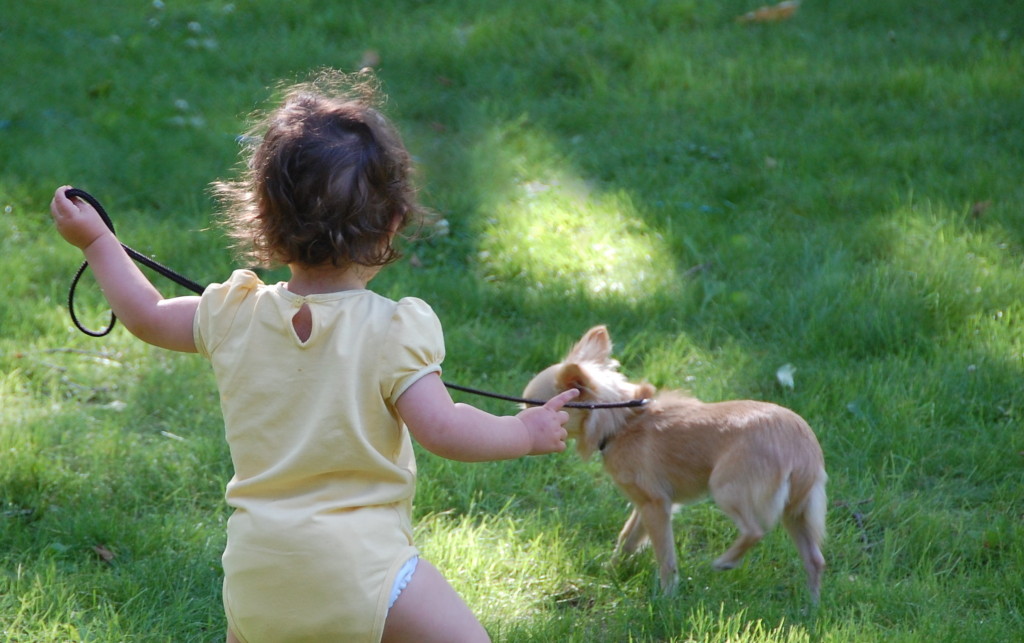
My daughter’s first word in English – puppy. I’m exited but don’t show it to her. I’m waiting for her to say Russian version – sa-BA-ka.
Children all develop at different paces, but in general you can expect the first words to start arriving at about 12 to 18 months old.These are generally repetitions of sounds that the baby has heard many times before.
But when she says it for the first time, parents become as exited as they can be: they clap hands, exclaim words of encouragement, tell everyone around about it, share it on Facebook etc. Looking at parent’s reaction on what she said, your baby takes out this message:
“Even though I made many sounds before, this word got mommy (or daddy) so exited! I’d better say it again!”
Don’t get me wrong, we get excited by our children’s speech in our household too, and certainly by the first words.
But as the “Russian” parent in our One Parent One Language household, it’s very important that I do not show my happy feeling when she speaks her first words in English (majority language for us).
For the system to work (you can read more about One Parent One Language and other bilingual raising systems here), it’s very important that our children understand the need to use the right language for the right parent.
The way I react to my daughter’s words tells her whether she’s using the “right” words or not.
For example, she has recently learned the word “puppy,” and she loves to say it. But when I’m with her and she says “puppy’ if a dog is around, I can’t respond by saying “yes, puppy,” even though it’s the right word in English for the dog. To teach her that she needs to find a different word with me, I just say “what is that?” , take a pause, and then say in Russian: “Who is it there? It is sa-Ba-ka! Because the Russian word for dog or puppy is harder than the English word (it has more syllables and a more complicated sound), she can’t quite say it yet. But she understands it, and she’s working on learning it so that she can be excited about puppies with me, too.
It requires a little pretending, especially at the young age when they’re first using words. There’s a very natural impulse to encourage them to get things right in any language — you just want them speaking! But to build good habits down the road, I have to be strong and pretend that I don’t understand their English developments. That way they have to develop in Russian as well.
I make it easy on myself by remembering that my daughter doesn’t need my reinforcement of her English-language progress. She lives in a majority English-speaking culture — she’ll be getting lots of development and lots of encouragement in English The more important role for me, as the “Russian” parent, is to teach my daughter that she needs to use her Russian vocabulary if she wants something from Mama. As we’ve said many times on this site, children will always follow the path of least resistance. If she learns that I’m understanding her English words and will respond to them, there’s no pressing motivation for her to use her Russian.
A lot of households where the parents speak more than one language but respond to the children when they use English result in “passive” bilinguals — the children understand both languages, but only speak fluently or comfortably in English (or another majority language).
